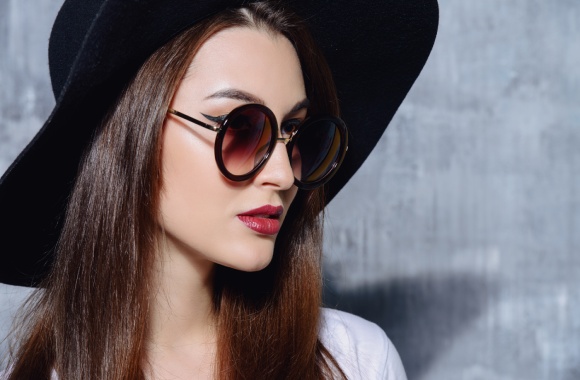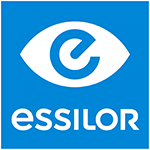7 reasons you need more than one pair of glasses
News Title
7 reasons you need more than one pair of glasses
You own one pair of glasses, but why might you want — or in many cases need — more than one pair of specs?
Here are just a couple of examples:
- Different frames can take your look from “desk job” to “night on the town.”
- Lens coatings can shield your eyes from the sun and block blue light from your devices.
- Progressive lenses or reading glasses make it easy to read books and text messages.
- Accidents happen. What if you break your glasses and don’t have a spare pair?
Still not convinced? Here are seven reasons you need more than one pair of glasses:
1. To protect against blue light

Before the 1990s, we could count on our hands the number of hours we spent on digital screens each week. Now it is easier to count the number of hours we look away from them.
We bathe our eyes in blue light nearly every waking hour of the day, exhausting our eyes and making it harder to get a good night’s rest.
Your current pair of glasses can help you read the text on your screens, but if the lenses don’t filter or block blue light, your eyes may feel tired at the end of the day. If you spend hours turning pages on your e-reader before bedtime, all that blue light could be interrupting your sleep cycle.
Consider getting a pair of computer glasses to relieve your digital eye strain and help you to rest easy (or easier -- juggling work, home and children at home now is exhausting).
2. To guard against UV rays
The sun’s ultraviolet (UV) rays don’t just damage your skin — they also can burn your retinas and corneas, leading to cataracts, photokeratitis, macular degeneration and, in extreme cases, solar retinopathy.
Besides pain, solar retinopathy causes visual impairment and vision loss, issues seeing colors correctly, visual distortions, photophobia and headaches.
Drugstore sunglasses work fine if you wear contacts (as long as they’re labeled UV 400 for maximum UV protection), but what happens if you primarily wear glasses?
Prescription sunglasses are a great way to see the world clearly and protect your eyes from UV exposure at the same time. If you’re driving as the sun goes down, switch from your sunglasses to your prescription eyeglasses.
If you’d rather not be switching glasses while behind the wheel, as that can take your eyes off the road, consider photochromic lenses. Photochromic lenses (often called light adaptive or transition lenses) are like three glasses in one — prescription glasses, sunglasses with UV protection and blue light protection for all the time you spend on your digital devices.
3. For the sake of fashion

Eyeglass frames hold your prescription lenses in place, yes, but they’re also a fashion statement.
While your everyday eyeglasses can have sensible, versatile frames — tortoiseshell to match whatever you’re wearing, rectangular and plastic to blend in — your backup pair can help you stand out.
Cat-eyes are feminine and sassy. Browline glasses are hipster and debonair. Clear frames are chic and simple. Whatever look you’re going for, a second pair of glasses can get you there.
If you are shopping for two pairs of glasses, maybe pick one pair with a professional appearance for your workdays and a second pair with a signature look for your nightlife.
4. To stay safe
When you think of safety glasses (or safety goggles), you likely picture them in a woodshop setting, worn by a carpenter hard at work. While safety goggles do protect against debris like wood chips and sawdust, they can also be a great asset in other scenarios.
For the best protection, keep your daily pair of glasses for day-to-day activities and get a pair of safety goggles for when you mow the grass, solder in your garage or trim the trees in your yard.
5. To read

Maybe you have nearly perfect vision but you’re starting to have a hard time seeing up-close. If you’re around 40 years or older, it’s natural to start losing your near focusing ability.
Presbyopia (age-related farsightedness) can make it difficult to enjoy the latest espionage novel from your favorite author and keep you from reading the instructions and side effects on your new prescription.
If you haven’t needed vision correction in the past, reading glasses may be all you need to see clearly that “Great Job!” text from your boss or to follow a new recipe to make a birthday cake for your little one.
If you’ve worn glasses or contacts for nearsightedness and this is the first time you’re having trouble reading the fine print, talk to your eye doctor. You might be a good candidate for progressive lenses, which will require a new prescription.
The advantage of progressive lenses is they enable you to see near (a crossword puzzle), far (road signs) and everything in between.
6. For times your contacts won’t cut it
Perhaps you think of your single pair of glasses as backup for your contacts. Maybe you don’t like the way you look in glasses, or you’ve worn contacts for so long that your glasses prescription is years behind.
In case of a contacts emergency, having a pair of backup glasses (or more than one pair) can be a help and a relief.
For example, working on your laptop can dry out your contacts, and dry contacts can rip or tear when you blink, scratch your corneas, or even fall out and get lost.
Having a backup pair of glasses in your bag, as well as at home for safekeeping, is a great way to give your eyes the occasional break from contact lenses.
7. To adventure

If you spend weekends fishing at the nearest lake or hiking in the mountains, you will want glasses suited to your active lifestyle.
For example:
For fishing, polarized sunglasses help reduce the glare from the water.
For mountain climbing, you want durability — traditional frames and lenses scratch and break easily.
If you spend your evenings and weekends playing video games or competing in e-sports leagues, gamer glasses will help you to see more clearly.
Whatever your favorite sport or hobby, there are glasses with lenses, coatings and tints that can help you up your game.
When adventure calls, make sure you have the right glasses before you answer.
Bottom line: One pair of glasses may not be — and probably is not — the best solution for all your vision needs. Prescription glasses, computer glasses, blue light glasses, photochromic lenses, workday and nightlife glasses — ask your eye doctor or optician to help you get the best glasses for your needs and lifestyle.

